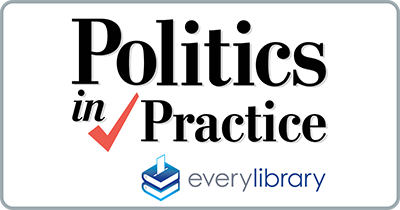Agenda Setters vs. Agenda Reactors: Defining the Librarian’s Role in Policy
School librarianship, whether we acknowledge it or not, is a special interest. The right to read is a special interest. This may sound uncomfortable at first. After all, we often think of special interests as lobbyists or industry groups, but advocating for the centrality of libraries in education is similar. We are promoting a specific vision of what schools should provide for students and families.
Within that framework, we have a choice: will we be agenda setters or agenda reactors?
Agenda setters bring ideas forward. They draft positive bills, propose budget initiatives, and frame education reforms. This is where school librarianship can lead with solutions—connecting literacy outcomes, social-emotional learning, or family literacy goals directly to the work of libraries.
Consider a state where the governor’s education reform plan is broad, addressing test scores, family literacy, and student support systems. However, it does not mention school libraries at all. Strong school library programs could more effectively advance every outcome in the plan. Setting the agenda in that kind of state means proactively aligning library priorities with the existing outcomes identified in the plan rather than waiting for school libraries to be included in the governor’s proposals.
In contrast, agenda reactors spend their time pushing back against harmful proposals or attempting to correct omissions. However, being a reactor is not inherently negative. Sometimes it is necessary to protect the integrity of the field and defend students’ right to read.
For school librarians and their allies, the question is not whether to engage in policy conversations. This decision has already been made by those drafting budgets, writing bills, and introducing reforms. The real question is: whose agenda are we working from?
If we only react, we risk allowing others to define the terms of the debate and the value of our work. By setting the agenda, we create opportunities to articulate libraries’ value system, emphasizing literacy, equity, and student success in ways that resonate with policymakers and the community.
For many school librarians, the first step is to identify where your work intersects with state-level education priorities. If your governor is focused on literacy scores, family engagement, or career readiness, you already have a natural entry point. The task is to ensure that school libraries are recognized as part of the solution. Setting an agenda is rarely done alone. It requires coalition building, collaboration with state associations, and partnerships with parents, educators, and legislators who see libraries as aligned with their own goals. By entering the conversation as an agenda setter rather than merely reacting, we strengthen our position and ensure that school libraries are included in the plans shaping the future of education.
For more on this topic, please view the August 2025 SLJ Webinar with John Chrastka and other state-level library advocates at “Librarians, Legislation, and Media Training: Successfully advocate for libraries in legislature and your local community.”
Filed under: Advocacy, Legislation, News
About John Chrastka
EveryLibrary’s founder is John Chrastka, a long-time library trustee, supporter, and advocate. John is a former partner in AssociaDirect, a Chicago-based consultancy focused on supporting associations in membership recruitment, conference, and governance activities. He is a former president and member of the Board of Trustees for the Berwyn (IL) Public Library (2006 – 2015) and is a former president of the Reaching Across Illinois Libraries System (RAILS) multi-type library system. He is co-author of “Before the Ballot; Building Support for Library Funding.” and “Winning Elections and Influencing Politicians for Library Funding”. Prior to his work at AssociaDirect, he was Director for Membership Development at the American Library Association (ALA) and a co-founder of the Ed Tech startup ClassMap. He was named a 2014 Mover & Shaker by Library Journal and tweets @mrchrastka.
ADVERTISEMENT
ADVERTISEMENT
SLJ Blog Network
One Star Review, Guess Who? (#226)
Your Jon Klassen, or, What’s Up With All the Board Books?
Otaku x Gal, vol. 1 | Review
Goodbye for Now
Take Five: February 2026 YA Books
Elisha Cooper Visits The Yarn!
ADVERTISEMENT






